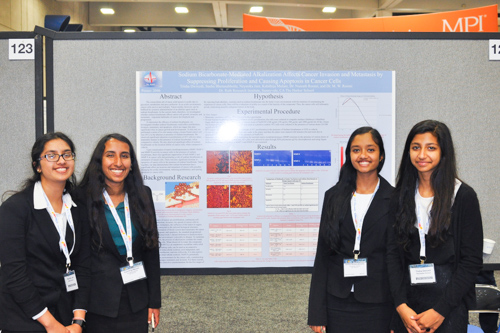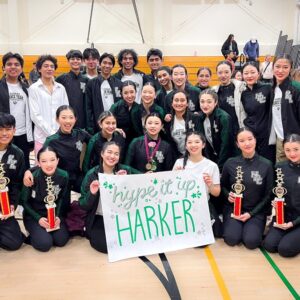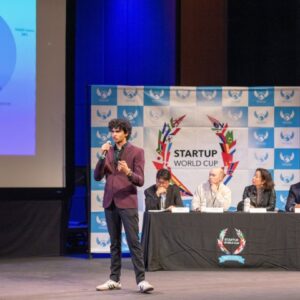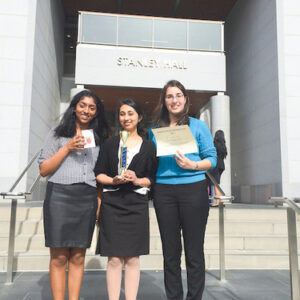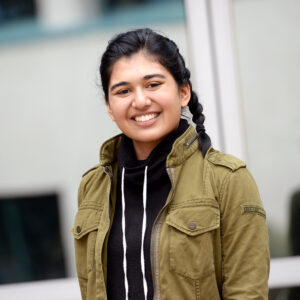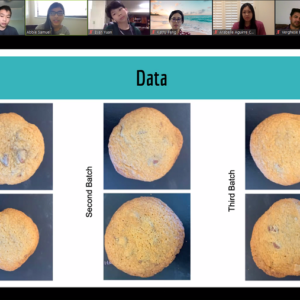Last week, Harker sophomores Sneha Bhetanabhotla, Trisha Dwivedi, Neymika Jain and Kshithija Mulam traveled to San Diego to present their research project at the annual meeting of the Society of Toxicology. Their project, on alternative breast cancer treatments, was one of eight high school projects chosen from around the country. On March 24, the students presented it for the first time to toxicology professors and experts.
That same day, the students met with researchers from Paris and toured the San Diego Convention Center. The following day, they were chosen to present at the poster session where toxicology experts were showing their research.
“Our research considered alternative treatments to breast cancer by using sodium bicarbonate to counteract acidity and enhance alkalization in the body in order to inhibit the invasion and metastasis of the cancer tumor,” said Mulam. “This experiment was conducted in vitro on mammary carcinoma cell line 4T1 using known anti-cancer supplement epigallocatechin gallate (green tea extract) as a comparison point to sodium bicarbonate.”
“Our project was accepted to the poster presenting session in which other professionals and researchers were presenting their works,” said Dwivedi. “On both days, we had a lot of professors and experts on the cancer cells and experiments we tested, so we received both commendations as well as feedback on how we can improve our project and take it to the next level. We are pleased to see that many experts who had been researching what we did were interested by what we had done, and our team is hopeful to expand upon our project to hopefully be able to present at next year’s conference in New Orleans.”
The professors in attendance were happy to offer advice to the students, who jumped at the opportunity to receive feedback from notable people in the field. “The chance to network with professionals and to present our findings to a larger audience at the conference was definitely an unforgettable experience for all of us,” said Mulam, “We hope to encounter more opportunities that help us further explore and appreciate the merits of research in the future.”
